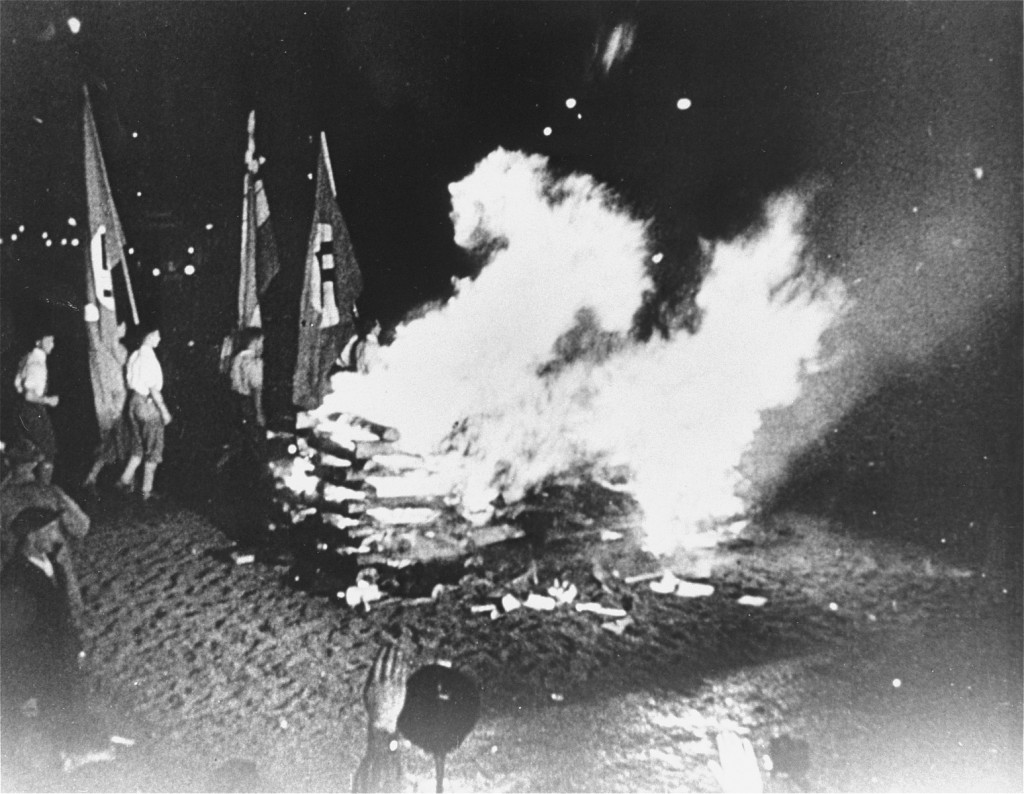
Franz Oppenheimer
In 1933, Nazi students at more than 30 German universities pillaged libraries in search of books they considered to be "un-German." Among the literary and political writings they threw into the flames were the works of Franz Oppenheimer.
Excerpt
Just as according to the discoveries of modern folk-lore all national costumes and all folk-songs are nothing else than costumes formerly worn by the nobility and former courtly songs which have come down in the world, so the racial theories of the populace of today are nothing else but class theories of the nobility which have come down in the world and have greatly deteriorated in the process; the false pride of the mob, which believes itself to be naturally superior and more aristocratic on account of its so-called "Aryan" blood, just as formerly the noble believed himself superior on account of his "blue" blood.
—"The Idolatry of the State," Franz Oppenheimer, 1927
Which of Franz Oppenheimer's Works were Burned?
Die soziale Frage und der Sozialismus (Social Problems and Socialism)
Das Grundgesetz der marxistischen Gesellschaft (The Basic Principals of a Marxian Society)
Who was Franz Oppenheimer?
Sociologist and economist Franz Oppenheimer (1864-1943) was born in Berlin, the son of a reform rabbi. Oppenheimer was appointed to the first-ever German academic chair of sociology at the prestigious University of Frankfurt. An advocate of liberal socialism, he believed that social inequities could be eradicated by redistributing large agricultural landholdings in favor of a cooperative agrarian system. Oppenheimer had taken an early interest in Zionism, laying the groundwork for theories of cooperative farming in Palestine. However, by 1913 his opposition to nationalism grew and he withdrew from Zionist activity. His prodigious writings, such as The Basic Principles of a Marxian Society, expanded on tenets proposed by Karl Marx. It was, predictably, one of his works burned during the book burnings. In 1938, Franz Oppenheimer left Germany for the United States where he taught and also founded The American Journal of Economics and Sociology.
Footnotes
-
Footnote reference1.
Curatorial note: this text appeared in Review of Nations, but was never published in German.
Critical Thinking Questions
How did the German public react to the book burnings? What were some of the reactions outside of Germany?
Why do oppressive regimes promote or support censorship and book burning? How might this be a warning sign of mass atrocity?

